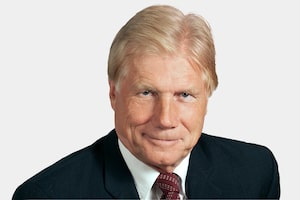Early in his book The Savage War, Murray Brewster says war and the blood spilled in it are too important "to be left to a cyclone of spin."
Mr. Brewster, a Canadian journalist who regularly reported from Afghanistan, then proceeds to yank away the propaganda cover. His book is an attempt to set the record straight – straighter at least than we've seen up to now. On war, governments everywhere tend to engage in sugar-coating. With Mr. Brewster's riveting, close-up reportage, we discover the extraordinary extent of that sugar-coating.
It was the Liberals who initially took Canada into the Afghan war. In Mr. Brewster's book, we find out via briefing notes from their time in office that we got into it for the most tawdry of reasons. It was essentially because we had to appease the Americans for not having joined hands with them in their fraudulently conceived war in Iraq.
In Afghanistan, we find out that our politicians made the classic chest-pounding mistake of overestimating their chance of success. Peter MacKay, who served as both foreign and defence minister, tells the author: "I don't think there was true recognition of just how difficult it was going to be to turn back the wave of insurgency."
In other words, if the Harper Conservatives knew the history of Afghanistan, they hadn't learned much from it. Their political heart was set on military glory. "The Liberals had medicare and the CPP," an insider tells Mr. Brewster. "We chose the military." For Prime Minister Stephen Harper, it was "ideological," another insider says. It was damn the torpedoes, full speed ahead. There'd be no cutting and running.
When it was clear the war rationale of fighting terrorism wasn't working, we find out how the Conservatives decided to try to sell the war on the basis of it being a humanitarian mission. We discover how that effort was badly misguided. It was focused on what, for the Afghans, weren't top priorities: things such as schools, polio vaccinations, women's rights, toys for boys and girls. But "in surveys stretching back to 2007," Mr. Brewster reports, "Afghans clearly listed their biggest concerns as unemployment, an absence of electricity and high prices."
He adds: "When you drilled down into the numbers, you saw that almost everything we were doing for them was tailored to our tastes." Issues such as education and health care were "easily understandable to people back home and, most important, politically sellable to a public that had already turned away from the war in droves."
The Brewster account of the war, vivid, fast-paced and seductively written, finds the author looking and hoping for encouraging signs but usually coming up empty. He moves back and forth from the flames of Kandahar to the war coverage in Ottawa. We get a blow-by-blow exposition of the Conservatives' paranoia over allegations they turned over captives to Afghan authorities for torture. Mr. Brewster finds "a hypersensitive, über-secret government and bureaucracy gone wild."
Canadian soldiers were fighting their best fight. But based on dozens of examples in The Savage War, the impression is that all the politicians and bureaucrats cared about was the political impact. The amount of infighting over whether returning bodies should be accorded media coverage was just one extraordinary instance. In Kandahar, journalists such as Mr. Brewster were repeatedly offered bogus feel-good war stories to sell back home. They were often berated by military commanders for not writing more positive stuff.
There were the vile put-downs of NDP leader Jack Layton and others who saw the lack of progress and the deaths and who wanted an early withdrawal. They were pilloried for being unpatriotic. But as Mr. Layton told the author, "Patriotism involves trying to make sure your country is doing the right thing."
The fighting for Canadians in Afghanistan is over now. Only peacekeepers and trainers remain. What also remains is a lot of spin to the effect that our mission succeeded. In The Savage War, there's a far different story.
 Lawrence Martin
Lawrence Martin